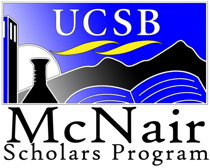In addition to providing contract & grant administration, ISBER serves a broad range of interests in the social sciences to promote innovative research collaborations and development. In 2024-25, support was provided for 204 researchers, staff, and graduate students from 31 departments in all three divisions of the College. During that period, contract & grant administration was provided by ISBER for more than 280 projects, including support for 10 centers and 3 campus programs.
Funding comes from a wide range of sources including governmental, federal agencies, State of California agencies, UC and non-UC sources, as well as other foundations and private sources, totaling over 71 different funding sources.
Research Centers
Broom Center for Demography

The Leonard and Gretchan Broom Center for Demography facilitates and engages in research and training in the areas of social demography, population studies, and social and economic inequality. Key issues explored by the Center include social cleavages such as gender, sexuality, race/ethnicity, and immigration status; population-environment interactions; the determinants of population health; social movements, migration, and the allocation of resources within and among families, workplaces, schools, and other social institutions.
Center for California Languages and Cultures

The center will serve as both an initiator and facilitator of exciting research projects bearing on languages, made unique by the context of California cultures. Examples would include studies of linguistic discrimination, linguistic racism and linguistic exclusion; the influence and commodification of California youth language in the global media as an indicator of the state's cultural influence.
Center for Digital Games Research

The University’s Center for Digital Games Research brings together UCSB faculty from a wide range of fields to collaborate on the research and design of digital media and games and to develop related technologies. The center’s faculty affiliates are leaders in the physical and biological sciences, computer and engineering sciences, social and behavioral sciences, and arts and humanities.
Center for Evolutionary Psychology
![]()
The goals of the Center are (1) to promote the discovery and systematic mapping of the adaptations that comprise the evolved species-typical architecture of the human mind and brain, and (2) to explore how cultural and social phenomena can be explained as the output of such newly discovered or newly mapped psychological adaptations.
Center for Information Technology & Society
![]()
CITS is dedicated to research about the social, cultural, and engineering aspects of contemporary information technologies, and to infusing lessons from this research into the innovation process. We foster collaborations through research partnerships formed across the social sciences, engineering, and the humanities, and we offer educational opportunities based on this work, primarily through student involvement in research teams and the CITS PhD Emphasis in Technology and Society.
Center for Middle East Studies

The Center for Middle East Studies (CMES) strives to enrich the academic study of the Middle East. The Center supports graduate and faculty research and teaching broadly related to the Middle East. Students and scholars focus on a range of themes--including religion, gender, language, literature, music, and performance--in a variety of historical moments, from antiquity to the modern period. CMES coordinates visiting scholars, lecture series, funding for research and conference travel, and the Foreign Language Teaching Assistant program, among other services.
![]()
"The EAC at UCSB extends a warm welcome to all scholars, graduate and undergraduate students, artists, writers and other people interested in East Asian cultures. The role of the EAC is to bring this diverse group of people together more often and create a space for the exchange of ideas across disciplinary boundaries and across the academy and the wider community."
- Director Mayfair Yang
Mesoamerican Research Center

"As an archaeologist determined to understand the origins of the Maya civilization, I have pioneered an unconventional path to explain the rise of ancient civilization in the tropical Maya forest. I have combined evidence ranging from archaeology to zoology to interpret the sustainable basis of the Maya in one of the world's last terrestrial frontiers: the tropics. Along the way, many challenges have arisen, but none with the complexity of El Pilar. Astride the contemporary border separating Belize from Guatemala, El Pilar has been the focus of my bold conservation design for an international friendship park on a troubled border. The vision I have for El Pilar is founded on the preservation of our cultural heritage in the context of the natural environment. I have built a collaborative and interdisciplinary team of local villagers, government administrators, and scientists who are now strategically poised to transform the El Pilar vision to a reality. Now is the moment for action."
- Director Anabel Ford
Orfalea Center for Global and International Studies

The Orfalea Center for Global and International Studies was established in 2005 with a generous gift from Paul Orfalea and the Orfalea Family Foundation. The mission of the Orfalea Center is to provide an intellectual and programmatic focus for the University's activities in global, international, and area studies. Center Faculty, Research Fellows and Graduate Researchers currently work in five areas of global concern: human rights and governance; climate change and climate justice; political economy and development; religion, culture and identity; and global security. The center seeks to expand and enhance UCSB collaborations with partners around the world on research and policy questions of global scope, implications, and relevance.
Programs
Mathematics, Engineering, Science Achievement (MESA)

The UCSB Mathematics, Engineering, Science Achievement (MESA) programs – MESA Schools Program (MSP) and MESA Engineering Program (MEP) - strengthen math and science skills for underrepresented students and improve access to higher education and productive careers. MESA's innovative and effective programs for students from elementary school to college are nationally recognized and serve as a model for others. Across California and several other states, MESA engages thousands of students in academic programs, helping them excel in school and eventually earn degrees in Science, Technology, Engineering, and Mathematics (STEM) fields. The MESA program's success lies in supporting students through the education pipeline through on-going partnerships with higher education, institutions, and industry.
McNair Scholars Program

The McNair Scholars Program prepares qualified undergraduates for entrance to a PhD program in all fields of study. The goals of the program are to increase the number of first-generation, low-income and/or underrepresented students in PhD programs, and ultimately, to diversify the faculty in colleges and universities across the country.
Haitian Studies & Engaged Scholarship
The Haitian Studies initiatives at UCSB have produced many longstanding interdisciplinary projects including the Journal of Haitian Studies, KOSANBA: A Scholarly Association for the Study of Haitian Vodou, the Carrefour-Feuilles Research Project, and Haiti Flag Week. The Engaged Scholarship initiative develops scholarly epistemologies and methodologies based on a collaborative process of knowledge production among scholars and community members, activists, and artists. Kalfou: A Journal of Comparative and Relational Ethnic Studies is a scholarly journal focused on social movements, social institutions, and social relations. It seeks to build links among intellectuals, artists, and activists in shared struggles for social justice.

